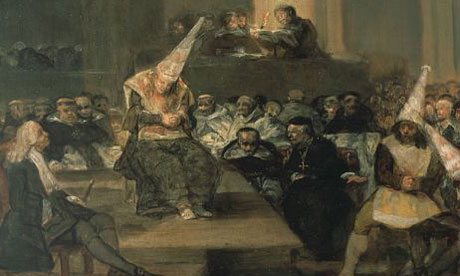Questioning the Unquestioned
*********************************************************************
The latest revelations in the Penn State mess is merely an example of the human urge towards false idolatry; questions must always be asked especially as absolute power corrupts absolutely
*********************************************************************
Last week the report on the investigation into the Penn State child abuse scandal was released. It revealed what some of us suspected but all hoped against: Joe Paterno was likely involved in the cover-up of Jerry Sandusky’s abuse of children. This just confirms that Mr. Paterno was a great football coach but as stated prior on this page (“The Penn State Mess: Not Recognizing the True Victims; Joe Pa was Never a Hero,” November 12, 2011), he was not the saint nor hero that his acolytes made him out to be.
The report indicates that the Penn State football program had become an insular atmosphere in which no one even dared think that anything being done was wrong, let alone question such actions. And with the god-like “Joe Pa” at the helm, even the university’s Board of Trustees wouldn’t dare interject themselves. Thus, the quadrumvirate of Joe Paterno, then university president Graham Spanier, athletic director Tim Curley and now-retired vice-president Gary Schultz were free to play prosecutor, judge and jury for all of their actions, a conflict of interest they clearly did not handle well as they mistreated the matter as a threat to the university and not the crime against children that it was.

Above: “The Star Chamber” was an English court of law whose sessions were held in secret, with no indictments, no right of appeal, no juries, and no witnesses. Modern institutions like organized religion and universities also have tried to enjoy such unchallenged power
And such insulation from accountability occurs amongst many august universities as well as in organized religion, to name a few institutions. The Catholic church’s leadership when confronting its sex scandals displayed the same mentality of characterizing any investigation into pedophile priests as an attack on the institution (and its fundraising) and not an attempt to bring miscreants to justice. This fits in line with the church’s rigid (to put it charitably) defense of its policies over the years: “the church is not a democracy!” we would hear thundered from the pulpit. Translated: the church is above reproach and no one should question it.
Such exemption from scrutiny is fine for any institution or endeavor that is not run by humans. But for those that have the “human touch,” expecting perfection from such leaders is not only unrealistic, but can prove dangerous, especially to the vulnerable like children. A healthy scrutiny of leaders’ actions also complies with the church’s own teachings that only God is perfect and no one else. Why should government and corporate America be the only ones under the glaring lights of public scrutiny?
There is nothing that can be done to change the past but at the very least, the future certainly can be molded for the better, by taking the proper lessons from these scandals. To wit, no institution can ever be run without some reasonable level of review to ensure that the people running it do not crash through the guardrails of acceptable behavior.
After all, unfettered power can be intoxicating and lead people to misuse it. As Lord Acton reminded us over 100 years ago, power tends to corrupt and absolute power corrupts absolutely.
-I.M. Windee


